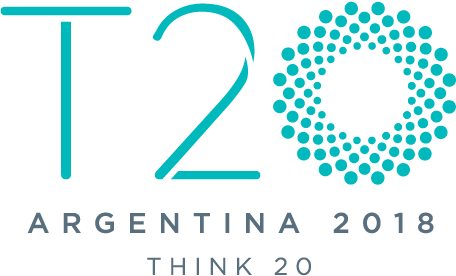It was at the round table organized by the DOC Research Institute in association with the Think 20 on May 30 in Berlin.
Global experts took part in the roundtable “Capacity building for Infrastructure Development in Emerging Economies”, an associated Think 20 Argentina event organized by the DOC Research Institute in Berlin. The representatives of the T20 Argentina were Pablo Ava, co-chair of Policy and Research, Gabriel Lanfranchi, co-chair of the Task Force on “Climate Action and Infrastructure for Development”, and José Siaba Serrate, co-chair of the “An International Financial Architecture for Stability and Development” Task Force.
 Vladimir Yakunin, chairman of the DOC Research Institute’s supervisory board, gave the opening remarks at the event and highlighted the importance of professional knowledge and skills in developing infrastructure projects that foster economic growth in less developed countries. He said that the possible outcomes should be carefully studied.
Vladimir Yakunin, chairman of the DOC Research Institute’s supervisory board, gave the opening remarks at the event and highlighted the importance of professional knowledge and skills in developing infrastructure projects that foster economic growth in less developed countries. He said that the possible outcomes should be carefully studied.
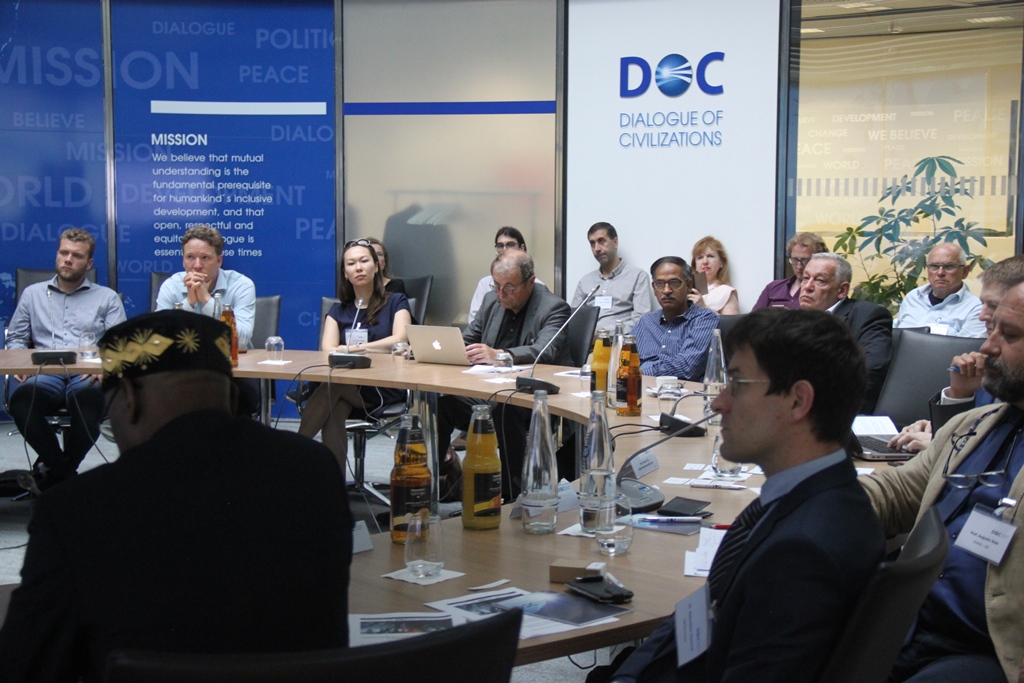 “Special attention should be paid to the fact that infrastructure investments are not a monetary ‘black hole’. They in fact have a wide range of positive effects from the very beginning of project implementation, such as job creation, local industry development, increased tax revenues, and requests for new educational services and skills. All of these positively affect the social wellbeing of a society and region” continued Yakunin.
“Special attention should be paid to the fact that infrastructure investments are not a monetary ‘black hole’. They in fact have a wide range of positive effects from the very beginning of project implementation, such as job creation, local industry development, increased tax revenues, and requests for new educational services and skills. All of these positively affect the social wellbeing of a society and region” continued Yakunin.
Thorsten Jelinek, Europe director of the Taihe institute, moderated the roundtable in which T20 members and other experts participated, such as Martino Tran, Valentine Udoh James, Sebastien Goulard and Gaukhar Nurgalieva (you can see the full program here).
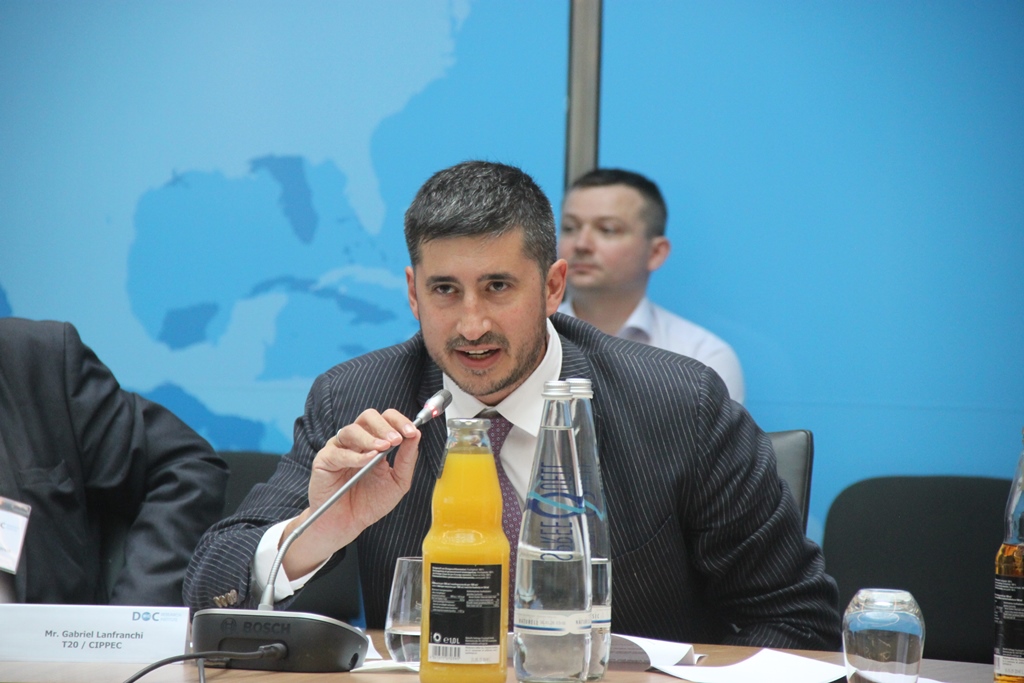 In his presentation, Gabriel Lanfranchi explained that among the challenges we face today is the lack of the ‘metropolitan dialogue’: the lack of dialogue among the stakeholders inside complex and interconnected urban environments. Currently, no municipalities or national governments can implement projects without the involvement of civil society or businesses. Thus, he called for a change in the paradigm of development. Platforms for dialogue among stakeholders ought to be provided so there is communication on a daily basis. He also explained the key concepts of his Task Force’s policy briefs , such as how to improve climate resilience through urban infrastructure and metropolitan governance.
In his presentation, Gabriel Lanfranchi explained that among the challenges we face today is the lack of the ‘metropolitan dialogue’: the lack of dialogue among the stakeholders inside complex and interconnected urban environments. Currently, no municipalities or national governments can implement projects without the involvement of civil society or businesses. Thus, he called for a change in the paradigm of development. Platforms for dialogue among stakeholders ought to be provided so there is communication on a daily basis. He also explained the key concepts of his Task Force’s policy briefs , such as how to improve climate resilience through urban infrastructure and metropolitan governance.
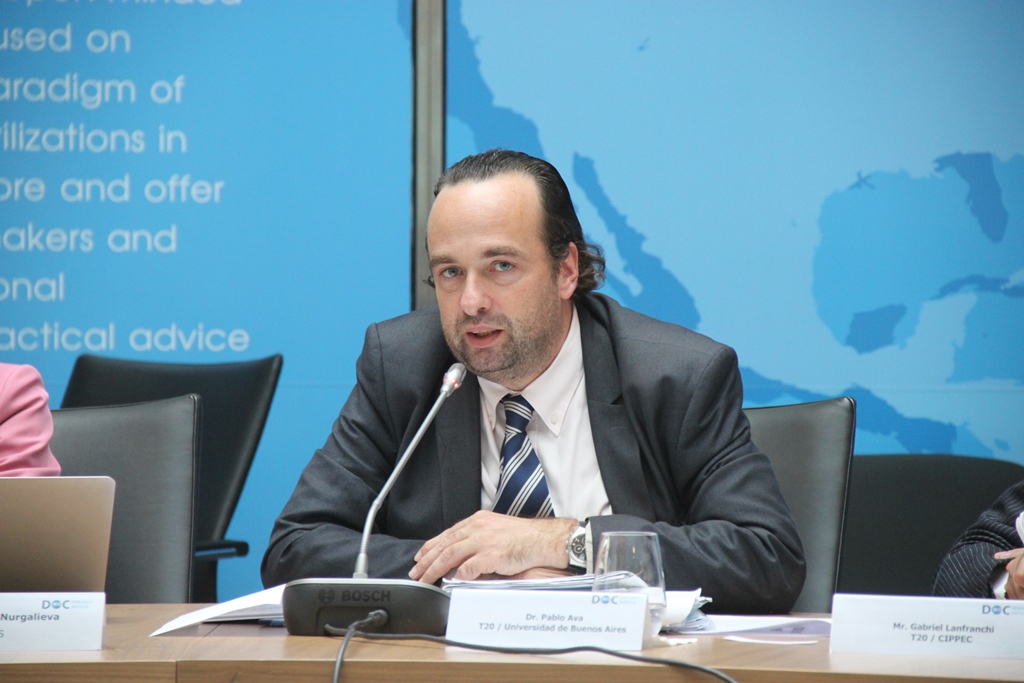 Pablo Ava spoke about the positive results from infrastructure projects and the key role of investment in boosting local markets. At the same time, these projects cannot only be carried out through state support, the experience of Argentina and other countries has shown that private-public-partnership (PPP) is vital to finance infrastructure development. In addition, he stressed the importance of policy coordination and the most serious policy issues on the agenda, which should have more collaboration and coordination: education, employment, sustainable agricultural production, and migration.
Pablo Ava spoke about the positive results from infrastructure projects and the key role of investment in boosting local markets. At the same time, these projects cannot only be carried out through state support, the experience of Argentina and other countries has shown that private-public-partnership (PPP) is vital to finance infrastructure development. In addition, he stressed the importance of policy coordination and the most serious policy issues on the agenda, which should have more collaboration and coordination: education, employment, sustainable agricultural production, and migration.
José Siaba Serrate addressed the challenges of “infrastructure gaps”: the financial gap and the technological or skills gap. He explained that multilateral development institutions are a key source for finance in long-term infrastructure projects, together with the PPP, as they provide an opportunity to fill the financial gap. Serrate said that proper data collection and management is required to mitigate risks generated by the complexity and long-term nature of infrastructure projects. He added that information and knowledge sharing is important for cooperation and sustainable development on regional and global levels.
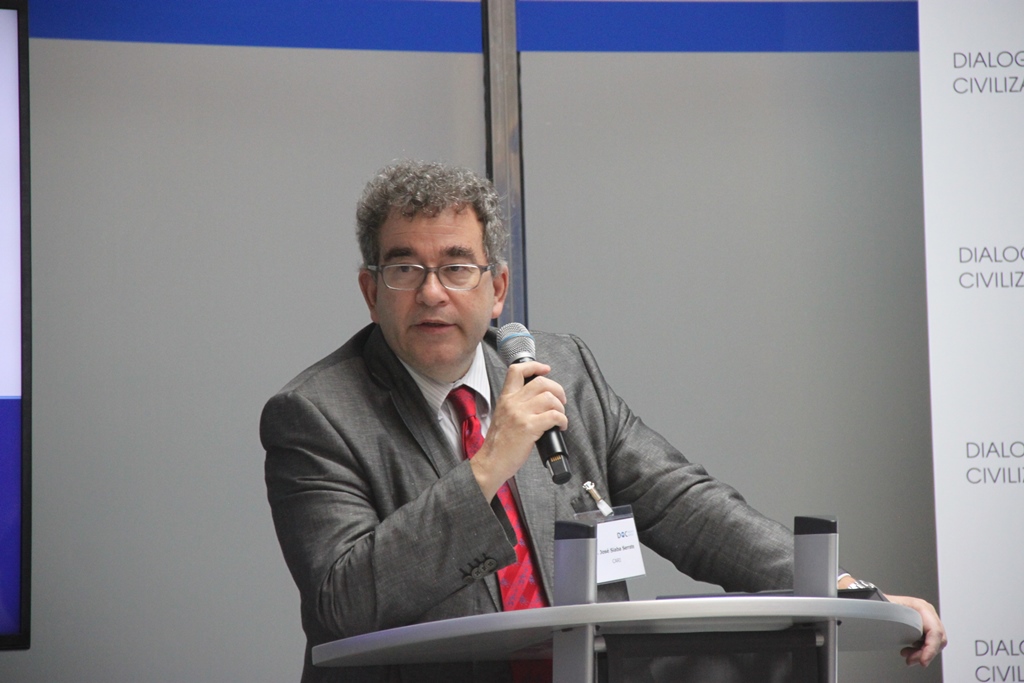 In conclusion, Jiahong Chen, research director of the DOC Research Institute, invited the participants to continue the dialogue and joint research work. Chen also noted the importance of an interdisciplinary and dialogical approach to address global challenges such as climate action and infrastructure for development.
In conclusion, Jiahong Chen, research director of the DOC Research Institute, invited the participants to continue the dialogue and joint research work. Chen also noted the importance of an interdisciplinary and dialogical approach to address global challenges such as climate action and infrastructure for development.
The outcome of the roundtable will enable expanded research in cross-border and cross-institutional cooperation for sustainable infrastructure development, which is important for regional and international cooperation. The results will be implemented in the policy recommendations at the T20 Argentina summit, which will be held in Buenos Aires on 16-18 September 2018.
